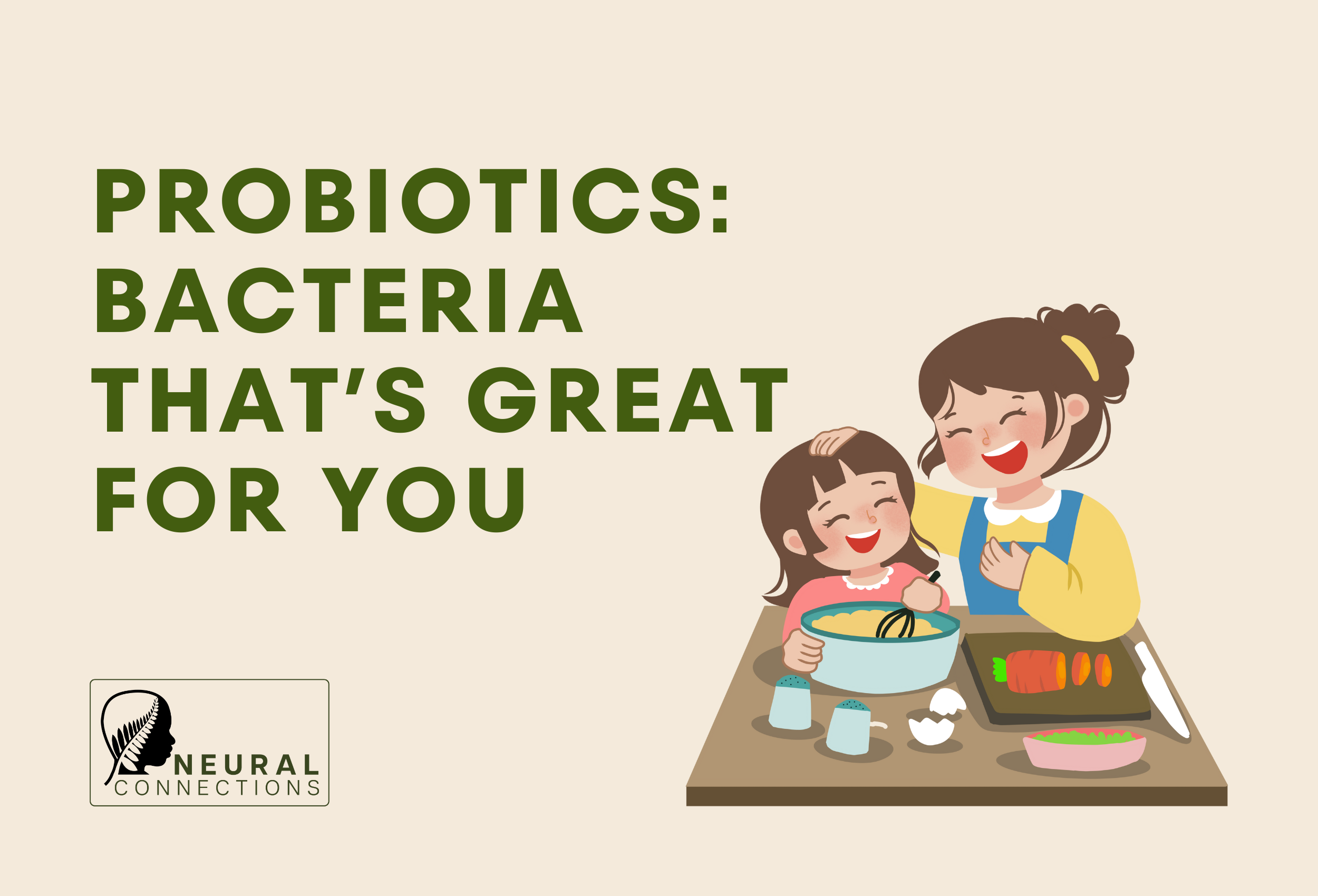Probiotics: Bacteria that's Great for You
Published: 1 Jul 2024
With more and more research showing the significance of the gut-brain axis (the axis links the brain and the digestive system) improving your gut health has become an effective way to boost your overall health, wellbeing and immunity.
We see this a lot with kids who come to see us at Neural Connections. In addition to the sensory and reflex integration work that we do at the centre - improving the kids’ gut health contributes a huge role in improving their development and self regulation. We often see huge leaps in these kids when parents make an effort to improve gut health alongside the treatments at Neural Connections.
And one of the best ways to improve gut health is to include probiotics in your everyday diet.
What are Probiotics?
Probiotics are “friendly” live bacteria and yeasts that line our digestive tract. These microorganisms provide vital support for your overall health - promoting immune health, digestive health, brain health, emotional health and more. The most common probiotic bacteria are Lactobacillus and Bifidobacteria. We can get probiotics from supplements, and also certain foods (see our list below).
How Probiotics Help?
Easily, the main reason for taking probiotics is that it improves digestive/gut health. Research in this area has found probiotics to reduce bloating, and also re-introducing healthy bacteria into the system especially after taking antibiotics (which often destroy gut flora necessary to maintain a healthy digestive system).
The connection between the gut and the brain also means that certain bacteria can be helpful in treating neurological disorders including autism and Alzheimer’s disease (though more research is needed in this area).
In addition, a number of probiotic strains have been found to be effective in strengthening the lining of the intestines, as well as the immune system. An article in the British Journal of Nutrition published in 2014 claims that there is evidence from a number of randomised controlled trials that reduces the duration of illness in children as well as adults.
Another article from researchers from the University of Newcastle upon Tyne in 2019 show that probiotics can mediate skin inflammation and treat atopic dermatitis and prevent allergic contact dermatitis.
Our own experience with the kids we work with who start including probiotics also support what has been found in the above research. We see much quicker improvement and progress in the kids whose gut health is improved. Parents have reported that they witness a change in their kids’ development as well.
Where to Get Probiotics?
Foods with live cultures
One great source of probiotic is something that may already be part of your diet - plain ol’ yoghurt! It can add beneficial bacteria in a simple and delicious way. Even non-dairy based yoghurts contain probiotics. Just avoid frozen yoghurt as these no longer contain live cultures (which don’t thrive at super cold or super hot temperatures).
Fermented foods
Whether it’s kimchi, natto, sauerkraut or pickles - take your pick at what tickles your taste buds. These fermented foods are all great sources of probiotics. If you like all of them - that’s’ even better as different fermented foods contain different strains of bacteria that help with different issues.
Probiotic Supplements
Not all probiotic supplements are created equal. Look for supplements that have backings of studies of efficacy, contain a wide spectrum of bacterial strains to find one that is suitable for you. Come speak to us at Neural Connections if you’d like to find out more about probiotic supplements that can help you deliver the right amount of live bacteria - straight to your gut!
At Neural Connections, we focus on offering treatment and protocols to help children regulate their emotions and behaviour better. Schedule a Discovery Call with us today to see if we can help.
References
https://www.chop.edu/health-resources/food-medicine-probiotic-foods

